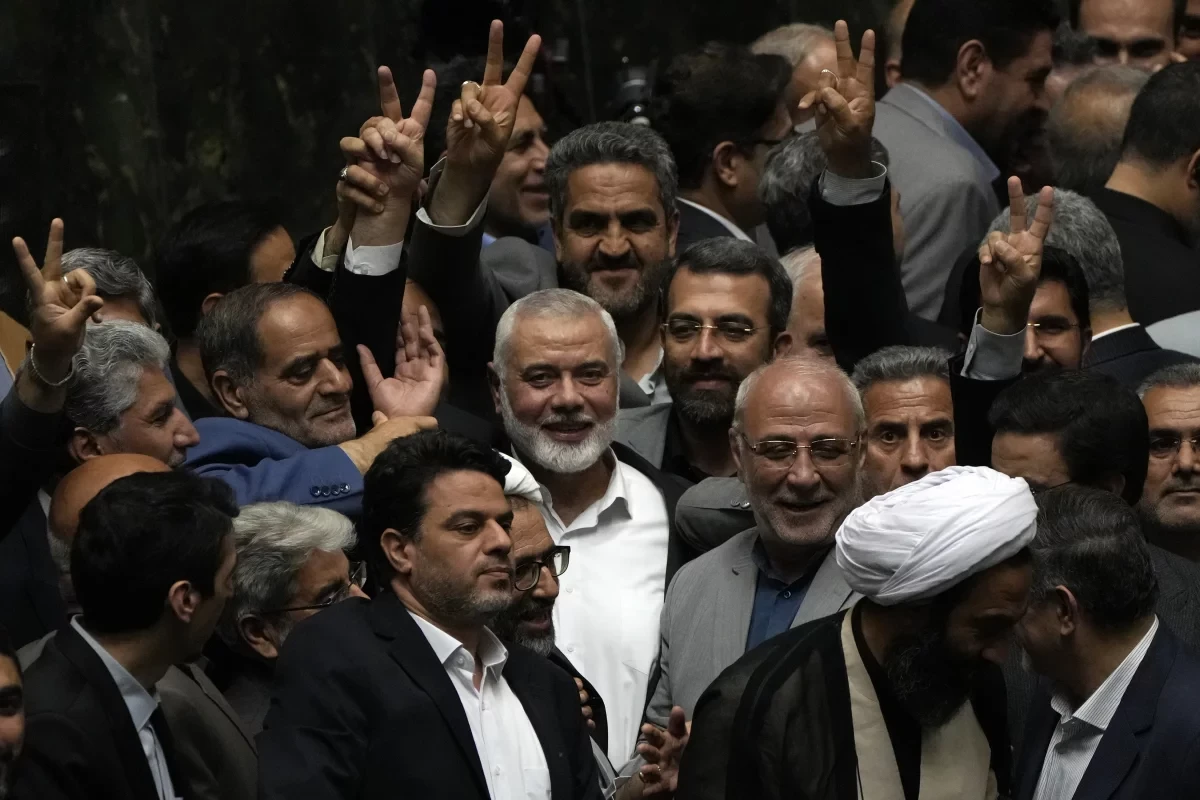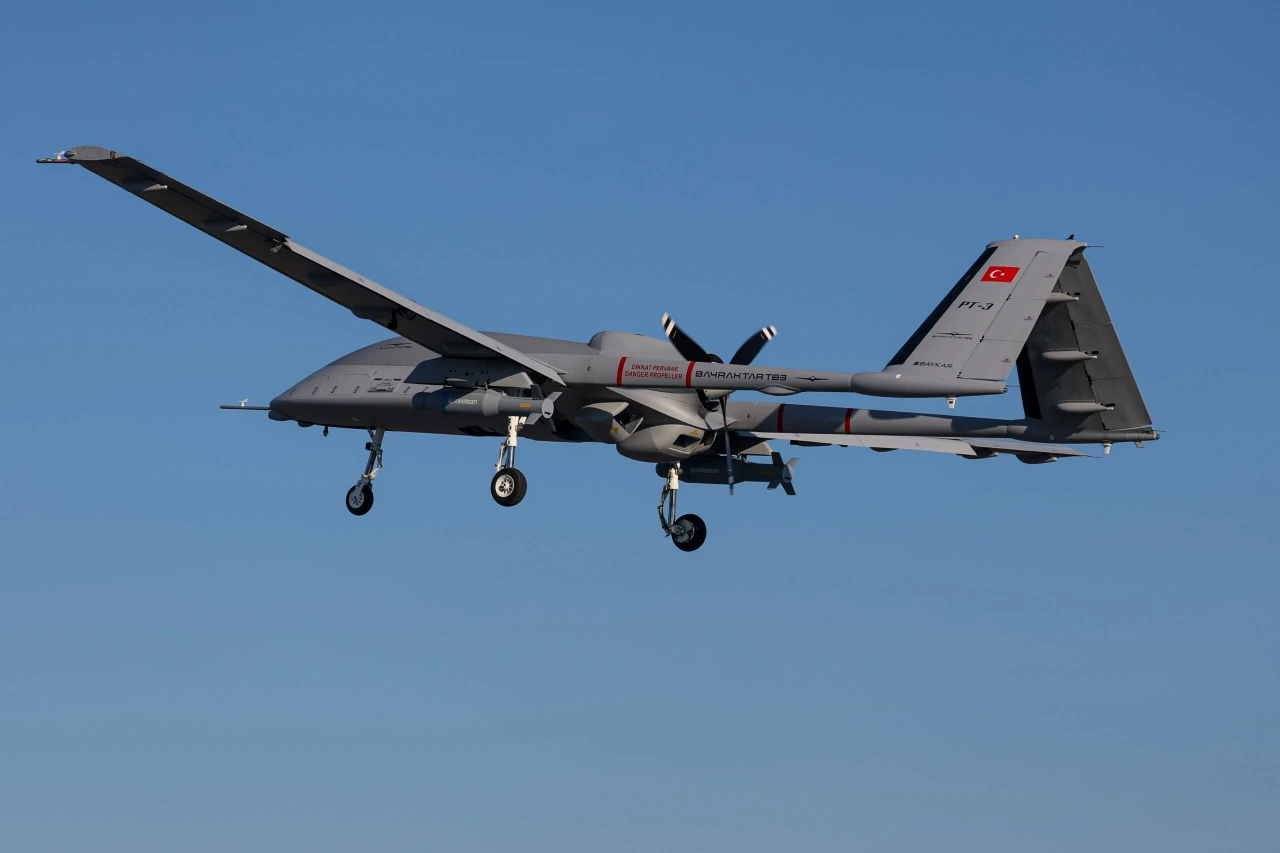What’s next? How will Iran respond to Ismail Haniyeh’s assasination
 Palestinian Hamas chief Ismail Haniyeh, flashes a victory sign as he is surrounded by a group of Iranian lawmakers after the conclusion of the swearing-in ceremony of newly-elected Iranian President Masoud Pezeshkian at the parliament in Tehran, Iran, Tuesday, 30, 2024.
(Photo by Vahid Salemi via AP)
Palestinian Hamas chief Ismail Haniyeh, flashes a victory sign as he is surrounded by a group of Iranian lawmakers after the conclusion of the swearing-in ceremony of newly-elected Iranian President Masoud Pezeshkian at the parliament in Tehran, Iran, Tuesday, 30, 2024.
(Photo by Vahid Salemi via AP)
Hamas leader Ismail Haniyeh was assassinated in the early hours of the morning in Tehran, Iran.
Haniyeh’s assassination in Iran is expected to provoke a significant response from Iran and its proxy groups. This event is likely to escalate tensions in the region, as Iran is supporting Hamas and other militant groups through the “Axis of Resistance.”
The assassination of Haniyeh, alongside the recent killing of a Hezbollah leader in Beirut, suggests that Israel is running a coordinated effort against Iran-backed groups, which could lead to an increase in proxy attacks by these groups against Israel and its allies in the region.
Given the vengeful nature of Mossad, the assassination of Haniyeh, the highest-ranking person who ordered the Hamas attack on Oct. 7, 2023, could also mean that Mossad has completed its network of killing those responsible for the attack.
On his first official day in office, Iran’s new President Masoud Pezeshkian faced a significant crisis. His response to this incident will provide insight into Iran’s behavior in the days to come.
Iran’s recent responses to Israel
On April 13, 2024, the Islamic Revolutionary Guards Corps (IRGC), in collaboration with the Islamic Resistance in Iraq, the Lebanese militant group Hezbollah, and Houthis, launched “Operation True Promise” against Israel and the Israeli-occupied Golan Heights.
The attack was in retaliation for the Israeli bombing of the Iranian embassy in Damascus on April 1, which killed two Iranian generals who were high-ranking officers in IRGC and several other individuals.
Iran’s retaliation involved around 170 drones, over 30 cruise missiles, and more than 120 ballistic missiles aimed at overwhelming Israel’s anti-aircraft defenses. The attack marked Iran’s first direct military action against Israel in their ongoing proxy conflict.
Pezeshkian and Iran’s possible retaliation
We will see in the coming hours and days how Masoud Pezeshkian and his new cabinet respond to this Israeli assassination in Tehran.
Iran may opt for a weak diplomatic response as it seeks to lift the embargo, or we might witness direct retaliatory actions against Israel. The ongoing tensions in South Lebanon could escalate further due to this assassination, potentially evolving into a large-scale hot conflict.
For now, Pezeshkian said that it will “defend its territorial integrity, dignity, honor, and pride, and will make the terrorist occupiers regret their cowardly act” of assassinating Hamas leader Ismail Haniyeh in Tehran.
Iran’s response may not be limited to the Middle East, prompting Israel to likely increase security measures in all regions where it operates. In the current environment, it is also important to consider that Israel could escalate its actions against Iran by carrying out more assassinations of Iran-affiliated figures.
The peace talks currently underway in the region remain peace in name only. All events show that there is no attempt at peace in the region, and if there is, it is very weak.



